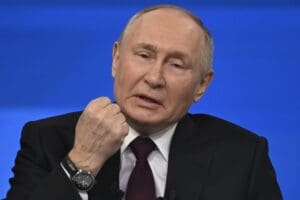When Flavio Briatore was ousted from Formula 1 in 2009 for his role in the infamous “Crashgate” scandal, it seemed a clear message was sent: the sport would not tolerate actions that compromised the safety and integrity of its competitions.
Briatore’s orchestration of Nelson Piquet Jr.’s deliberate crash during the 2008 Singapore Grand Prix put lives at risk and manipulated race outcomes, leading to his indefinite ban by the FIA. Yet, here we are in 2024, with Briatore not only back in the paddock but also formally reinstated as an executive adviser to Alpine.
This decision to bring Briatore back into the fold of Formula 1 raises significant ethical questions about the sport’s values and its commitment to integrity. The initial ban, although later overturned by a French court, left an indelible mark on Briatore’s reputation. Despite his continuous presence around the paddock and ongoing involvement in driver management, his formal re-entry into an official role signals a troubling inconsistency in the sport’s moral standards.
Contrast this with the treatment of Christian Horner, the Red Bull team principal, who faced severe backlash over accusations of controlling behaviour towards a female employee. Despite being cleared by an independent investigation, Horner’s reputation took a hit, and his peers called for transparency and adherence to positive values. The discrepancy in responses to these two figures is striking.
When Briatore’s return was announced, Alpine’s team principal, Bruno Famin, was quick to dismiss concerns about Briatore’s past. “I don’t really mind about the past,” he stated, emphasising the potential benefits of Briatore’s experience and connections. Famin’s perspective, echoed by other team principals, suggests a disturbing willingness to overlook serious past misconduct in favour of perceived immediate gains.
Toto Wolff of Mercedes, Fred Vasseur of Ferrari, and Alessandro Alunni Bravi of Stake all underscored Briatore’s talents and contributions to the sport, seemingly brushing aside the gravity of his previous actions. This collective endorsement starkly contrasts with their earlier demands for accountability in Horner’s case, highlighting a selective approach to moral scrutiny.
Formula 1’s ethical landscape appears increasingly influenced by commercial interests. Since Liberty Media acquired the sport’s commercial rights, the focus has been on expansion and profitability. The Netflix series “Drive to Survive” has significantly boosted F1’s popularity, attracting a diverse and global audience. This surge in viewership has translated into increased sponsorship, investment, and overall value for the teams and the sport.
It raises the question: Is Liberty Media’s apparent indifference towards Briatore’s past a reflection of a broader strategy where value addition trumps moral considerations? The willingness to turn a blind eye to Briatore’s indiscretions might indicate that, as long as it adds value, the sport’s moral compass can be conveniently adjusted.
What does this tell us about Formula 1’s ethical landscape? The sport appears to have a malleable moral compass, one that is influenced by friendships, financial interests, and the allure of strategic advantages. When it comes to figures like Briatore, whose connections and expertise are seen as valuable, past indiscretions are conveniently forgotten. Meanwhile, others, like Horner, face intense scrutiny for issues that, while serious, were investigated and cleared through proper channels.
Formula 1 has made strides in presenting itself as a sport committed to diversity and positive values, but the reappointment of Briatore undermines these efforts. It sends a conflicting message to fans and stakeholders about what the sport truly stands for. If the safety of drivers and the integrity of competitions can be compromised without lasting consequences, where do we draw the line?
In welcoming Briatore back, Formula 1 risks eroding trust and credibility. The sport must reconcile its actions with its proclaimed values, ensuring that its commitment to integrity is not swayed by convenience or the prospect of short-term gains. Only then can it genuinely uphold the standards it professes to champion.
Read more:
Formula 1’s Selective Morality: The Flavio Briatore Paradox
























